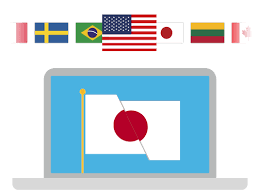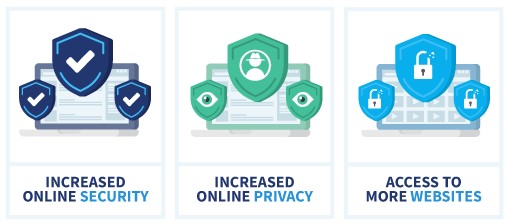
As an Army officer or soldier, your job involves collecting and processing sensitive information. Whether it is sending reports to command centers or communicating with fellow officers, security breaches can be disastrous when not using vpn for army.
So how do you ensure that your data stays private and protected? The answer lies in Virtual Private Networks (VPNs).
In this blog post, we will explore the top 6 reasons why using a VPN in the Army should become a priority for every officer and soldier who values privacy, security, and freedom. Let’s dive into the world of VPNs and vpn for army!
What is a VPN and how does it work?
A Virtual Private Network, or VPN for short, is a type of network that creates an encrypted connection between your device and the internet. It allows you to securely access the internet from anywhere in the world by routing your data through a private server located elsewhere.
When you connect to a VPN server, all traffic to and from your device is encrypted making it impossible for anyone else on the same network to see what you’re doing. This means that any sensitive information such as passwords or credit card details is kept secure.
VPNs work by creating an encrypted tunnel between two devices- one end being yours and another being the VPN provider’s server. When you send data over this tunnel, it becomes unreadable without proper encryption keys thereby securing it against eavesdroppers.
Once connected to a VPN server, your IP address appears as if it’s coming from that location rather than where you physically are. This feature enables users in countries with strict online censorship laws or geo-restrictions to access the content they would otherwise not be able to view.
Using a VPN provides privacy, security, and flexibility when accessing information online regardless of geographical barriers or network restrictions imposed on military networks, this is why it’s worth exploring vpn for army.
The benefits of using a VPN in the Army. Why use VPN for army.
 Using a VPN for Army comes with numerous benefits that can help soldiers stay safe and connected while on duty. One of the main advantages is enhanced security as a VPN encrypts all data transmitted over the internet, making it virtually impossible for hackers or unauthorized individuals to access sensitive information.
Using a VPN for Army comes with numerous benefits that can help soldiers stay safe and connected while on duty. One of the main advantages is enhanced security as a VPN encrypts all data transmitted over the internet, making it virtually impossible for hackers or unauthorized individuals to access sensitive information.
Another benefit is improved privacy, as a VPN masks users’ IP addresses and makes them anonymous online. This means that soldiers using public Wi-Fi networks or accessing restricted websites can do so without their activity being traced or monitored.
Using a VPN also allows soldiers to bypass geographical restrictions imposed by certain websites or services. For example, if an online service is only available in the US but a soldier is stationed overseas, they can use a VPN to connect to a US server and access the service as if they were physically located there.
Moreover, using a VPN ensures faster connection speeds when accessing resources remotely. This is because military networks are often bogged down with traffic and other limitations which may slow down connections significantly.
A high-quality VPN can alleviate these problems by offering optimized servers specifically designed for streaming video content quickly.
Using a reliable VPN should be considered essential for any military personnel who require secure connectivity while on deployment.
The top 6 reasons to use a VPN in the Army

Using a VPN for Army can greatly benefit soldiers, especially when it comes to protecting their sensitive information and maintaining their security online. Here are six reasons why:
1. Protecting Sensitive Information: A VPN encrypts all data transmitted between devices, ensuring that even if intercepted by hackers or snoopers, the information is impossible to read without proper decryption. For soldiers handling sensitive military information, this added layer of protection can be crucial.
2. Accessing Geo-restricted Content: When stationed overseas or on deployment, accessing certain websites and streaming services may become restricted due to location-based blocking. With a VPN, soldiers can bypass these restrictions and access any content they need from anywhere in the world.
3. Preventing Cyberattacks: Cybersecurity threats are prevalent nowadays; hence using a VPN service helps to prevent potential cyber-attacks such as phishing scams or malware infections which could compromise personal details.
4. Keeping Communication Private: Soldiers often rely on communication apps for work-related matters but those conversations contain sensitive data which requires confidentiality where only authorized personnel can have access to it. VPN for army will fix those issues for you.
5. Avoid Bandwidth Throttling: Military bases typically share internet connections among many users resulting in some users experiencing slow load times while others enjoy fast speeds – Using a VPN prevents bandwidth throttling by ISPs (Internet Service Providers) therefore providing better connection speeds for everyone connected through the same network
6. Protect Personal Privacy-Lastly using a reputable vpn provides anonymity giving soldiers control over what information they want shared with third parties thereby keeping their private lives confidential
How to get started with using a VPN in the Army
Getting started with using a VPN for Army is a straightforward process. First, you need to choose a reliable VPN service provider that suits your needs and budget.
Once you have selected a VPN service provider, download and install their software on your device(s). Most reputable providers offer software for different operating systems such as Windows, macOS, iOS, or Android.
After installing the software on your device(s), launch it and log in using the credentials provided by the service provider. Select the server location according to your preference or let the application automatically find the one closest to you.
It’s recommended that military personnel use dedicated servers offered by their VPN services rather than shared ones used by regular users since they provide an extra layer of security against potential cyberattacks.
Now that you’re connected to a secure server via your chosen VPN service provider; enjoy browsing without worrying about surveillance or data breaches!
Best VPN for Army
HideIPVPN offers a VPN service with military-grade encryption, and high-speed servers with unlimited bandwidth.
Our service comes with shared IP addresses so that your activity can never be tied to one particular user, further protecting your privacy.

We also offer DNS leak protection, a Kill Switch, the latest VPN protocols, and a guaranteed no-log policy.
Best VPN Deal! Get HideIPVPN for $2.7/mo!
Every purchase you make comes with a 30-day money-back guarantee.
Alternatives to using a VPN in the Army
While using a VPN for Army is highly recommended, there are some alternatives that soldiers can consider.
One alternative is to use Tor, which is a free and open-source software designed for anonymous communication. By using Tor, soldiers can hide their IP addresses and encrypt their internet traffic, making it difficult for anyone to track them online.
Another option is to use a proxy server. A proxy server acts as an intermediary between the user’s computer and the internet. It allows users to access websites anonymously by hiding their IP address and location. However, it’s important to note that proxies don’t provide encryption or security features as VPNs do.
Additionally, soldiers can also use secure messaging apps such as Signal or Wickr for communication with colleagues without worrying about potential eavesdropping from outside parties.
While these alternatives may provide some level of anonymity and security, they do not offer the same comprehensive protection as VPNs do.
Soldiers must carefully weigh the risks associated with each alternative before deciding which one suits their needs best.
Conclusion
Using a VPN for Army is not only beneficial but also necessary. It ensures secure and private communication between soldiers, prevents cyber-attacks and data breaches, allows for access to geo-restricted content, supports remote working capabilities, reduces latency issues when accessing cloud-based applications or services, and helps maintain operational security.
While there may be alternatives to using a VPN for such as Tor or proxy servers; they come with their own set of limitations and risks. Therefore, it’s best to use reliable VPN providers that cater specifically to military personnel.
It’s important for soldiers to understand how a VPN works and take advantage of its benefits. By following some basic guidelines on how to get started with using a VPN for Army, they can easily enhance their online activity while performing their duties safely from any location around the world.
Incorporating a VPN into daily operations should be considered essential by every soldier who values privacy and security in today’s digital age.



